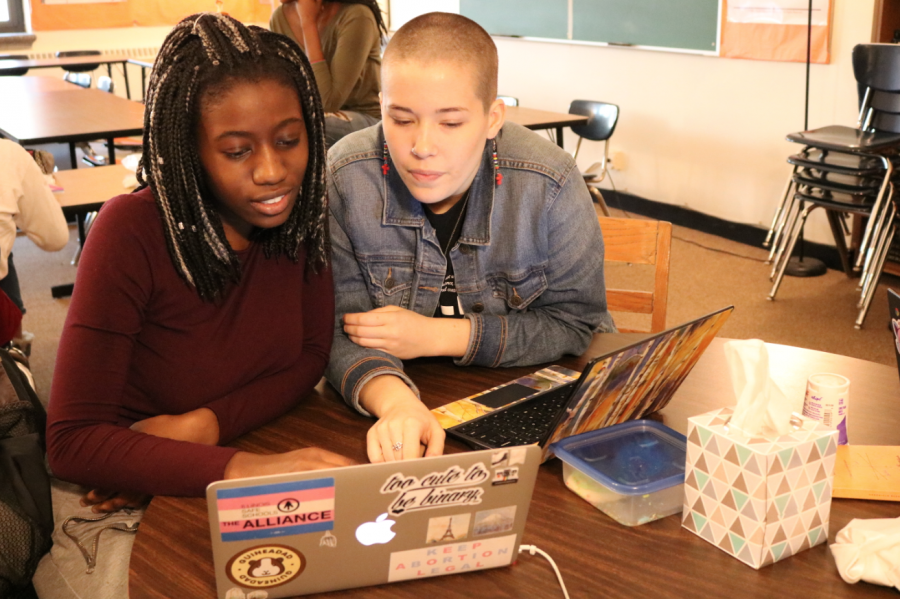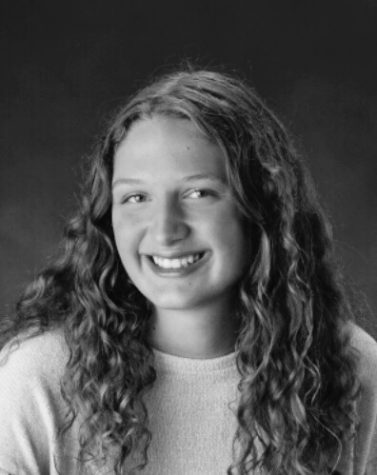SOAR workshops dismantle ignorance at its source
Seniors Nialie Pomplius and Genevieve Lindley reflect on the latest SOAR conference.
March 23, 2018
70 total participants. Two days.
This is the breakdown of the winter SOAR conference on Feb.15 and Feb.16 at Northwestern University. SOAR, otherwise known as Students Organized Against Racism, facilitate discussions about racial roles through a variety of activities that take place throughout two days.
“I’ve seen the program change the lives of individuals, empower kids of color, and empower white students to examine their privilege and the way that white supremacy permeates their existence and seen them deconstruct that,” staff coordinator of SOAR, Corey Winchester, says. “Ultimately SOAR is a really important institution in the school now because it pushes for change from the bottom up. It gets the students that participate to shift their thinkinking, which is the first step in creating long lasting change.”
SOAR provides a space for students to get educated and push their boundaries about the concept of race and the role that it plays in our society. This especially pertinent to white students.
“It’s easy to be white and just accept your privilege and not think you’re part of the problem if you’re not outwardly racist,” junior Dylan Anderson says. “Education about race is important; SOAR allows for us to talk about this in a safe space and genuinely learn from each other.”
SOAR board students both organize and facilitate the event, focusing on creating the most well-rounded take on educating students about race.
“The goal of the conferences is to allow students to identify issues they see, affirm their identity and role in the community and society, and then arm them with the tools to have discussions about race with other people,” senior SOAR board member Sofia Garcia says. “We also discuss privilege and explore intersectionality.”
Discussion, consultation, and debate are key parts of the conferences. The goal of the conference is not to make students feel safe and comfortable, but rather to push and to expand the beliefs that participants already hold. For white people, this is especially imperative.
“There are white people who don’t even understand what racism is because they’ve never had to experience it. They can be blind to their privilege and it takes minorities so much just to show white people that what they’re doing is wrong,” sophomore Seth Shimelfarb-Wells says. “I think that it should be a requirement for every student to go to a SOAR conference at least once because these are things that you can’t be taught in school but are so important to get educated about.”
From activities such as “Step Forward, Step Back,” to watching documentaries, SOAR focuses on providing a range of activities for students to have discussions about race and equity.
“One of the most important and impactful activities I believe is the affinity group discussions,” senior SOAR board member Joe Frankel says. “This is where the conference is split into groups by race and each group gets their own reflection time in a private location to unpack all of the information, for some it’s all new and for others it’s review.”
The affinity groups organized by SOAR compels white students to face the system that they have been benefiting from their whole lives.
“We open it up to the participants about what they saw, what they thought about, and what really struck them,” Garcia says.
While spots for the annual SOAR conferences prioritize those who have yet to attend a conference, the conferences are open to all grade levels.
“I think one of the most important things about fighting racism is being educated. There are so many things you can learn from being in an environment where you’re listening to people’s experiences and educating yourself on different perspectives of different people,” first-time senior conference attendee Kathryn Campbell says.
There are two SOAR conferences every year, one in the fall and one in the winter, with opportunities to pick up a field trip form and lock in a spot weeks prior to the event.
“Going to SOAR is also extremely important because it gives you the tools to make decisions about opposing racism on your own,” says Campbell. “It’s not the job of people of color to tell white people what they need to do to fight racism. It’s the job of white people to fix our problem—because racism truly is white people’s problem—and so going to SOAR and learning about all of the ways racism manifests itself and learning about all of the ways I contribute to racism as a white person, helps me figure out what I can do.”











